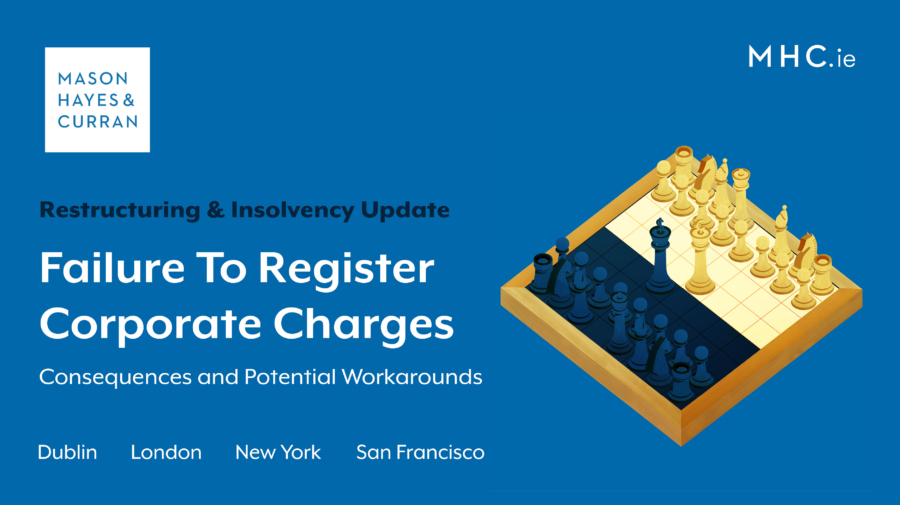
A recent High Court decision provides a useful reminder of the consequences of non-registration of charges in the Companies Registration Office. Restructuring & Insolvency partner, Frank Flanagan looks at the decision and considers the lessons to be taken from this case.
Irish company law provides that if a charge granted by a company is not registered in the Companies Registration Office (CRO) within 21 days of its creation, it is void against a liquidator and any creditor of the company. There is a duty imposed on a company which grants a charge to register the charge in the CRO but the creditor taking the charge can also do so.
Diamond Rock Developments Ltd (the Company) granted a mortgage over a property. That mortgage was registered in the Land Registry but was not registered in the CRO.
The creditor enforced on the mortgage and entered into possession of the property. Some time later, the Company was placed into creditors’ voluntary liquidation.
The liquidator challenged the validity of the mortgage and sought a variety of orders including an order restraining the creditor from selling or taking steps to sell the property.
The case made by the liquidator in the application was simple – as the mortgage was not registered with the CRO, it was void as against him as liquidator. The defendant argued that as a mortgage remains enforceable against a company even if not registered in the CRO and as he had taken enforcement steps on foot of an enforcement event to take valid possession of the property before the Company entered liquidation, the orders sought should not be granted as his possession of the property was lawful.
Judgment
The Court rejected the defendant’s claim that taking possession in some way crystallised or determined the mortgage and, on the plain words of the statute, held that it was void as against the liquidator. Accordingly, it was of no relevance that an enforcement event may have taken place or that the defendant may have validly taken possession before the liquidator’s appointment.
The judgment concluded that the mortgage could not be relied on by the defendant and could not bind the liquidator, meaning that the mortgaged property falls into the Company’s assets to be distributed amongst the Company’s creditors.
Comment
This case highlights a series of missed opportunities on behalf of the defendant.
First, while the Companies Act 2014 imposes a duty on a company granting a charge to register charges in the CRO, the person taking the charge can also register it. In fact, in the normal course, the solicitors for the creditor effect registration.
Secondly, at any time up to the appointment of the liquidator, the defendant could have applied to the High Court for an extension of time within which to register the charge in the CRO. However, to grant that relief the Court would have to have been satisfied, amongst other things, that the registration would not prejudice other creditors. Accordingly, in reality, it would need to have been brought before the Company got into financial difficulties.
Finally, if having taken possession, the defendant had completed the sale of the property before the appointment of a liquidator, assuming that everything was correctly done, it would have been relatively unlikely that that would have been challenged by a creditor.
The fact that the charge was void as against the liquidator does not have any effect on the debt and the creditor would be entitled to be treated as an unsecured creditor.
This case highlights the need for secured creditors to ensure that charges are properly registered and to take prompt corrective action if they are not registered within the statutory time limits.
The content of this article is provided for information purposes only and does not constitute legal or other advice.
Share this:






